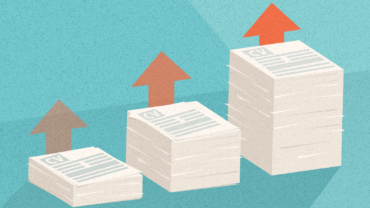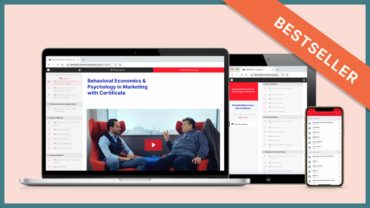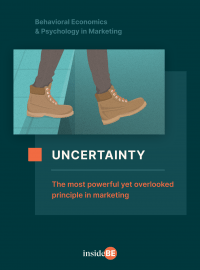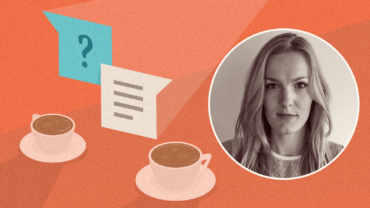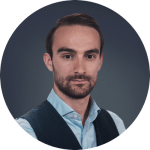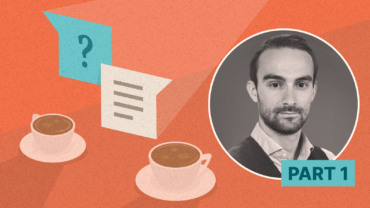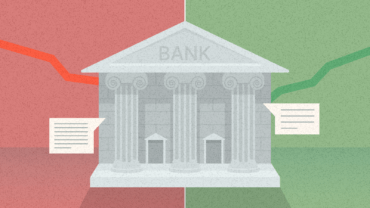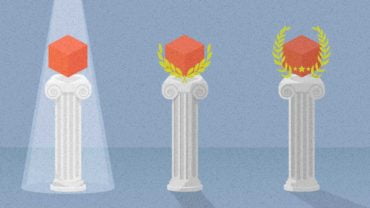Interview With Matej Sucha: Theoretical Knowledge and Academic Rigor Don’t Make a Good Behavioral Consultant
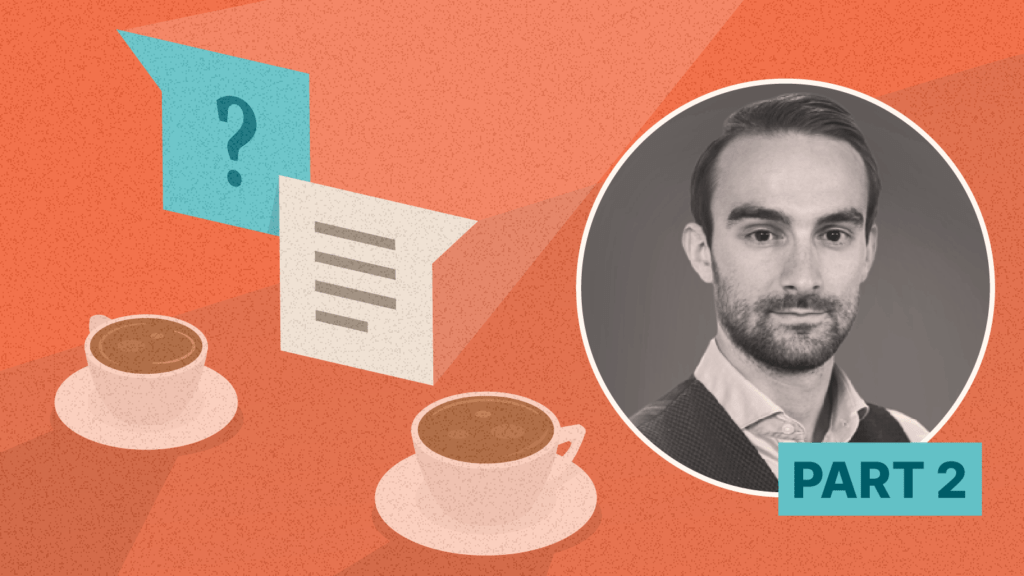
In the second part of our conversation with MINDWORX CEO Matej Sucha, we continue our discussion on what his most challenging task was, whether making mistakes is good or bad, what skills every behavioral consultant should have, and what the COVID-19 pandemic has taught him.
In this interview, you’ll discover:
- What are the most demanding tasks he’s faced with in the business;
- What changes has the COVID-19 pandemic brought to his way of life and work; and
- Why having the academic rigor and knowledge of behavioral economics is not enough in the business world.
In case you missed it: read the first part here.
Are the companies you work with familiar with the basics of BE or are the principles of behavioral economics that you use something completely new to them?
I don’t think they’re particularly familiar with BE. Though most of them do have a basic knowledge of BE, and when we start doing projects with them, they’ve already heard of it through our series of presentations, webinars, videos, or articles. They end up learning more and more about it along the way. Interestingly enough, one big telecommunications company under our influence started building its own behavioral team in-house. We want companies to learn, and it’s always easy to work with a company that is at least somewhat familiar with BE principles.
What’s the biggest mistake you’ve ever made in business? Can you remember a case where you really messed something up?
Well, like most people, I’m not perfect.. I´ve made some mistakes when it comes to hiring, communicating with colleagues, etc. But I don’t dwell on them, I simply move on and try to learn from them. And at the end of the day, I´m doing all I can to fix them. I´m the one getting the most critical feedback out of the whole team. (laughs)
“Making mistakes is a chance to improve. You need to give people freedom and responsibility, and with that inevitably come mistakes.”
Really?
Yeah. I make a lot of the decisions and therefore a lot of mistakes, which everyone notices. But I’m grateful for the company culture we have at MINDWORX, which encourages everyone to speak up and give feedback. This is what allows us to keep going and improve.
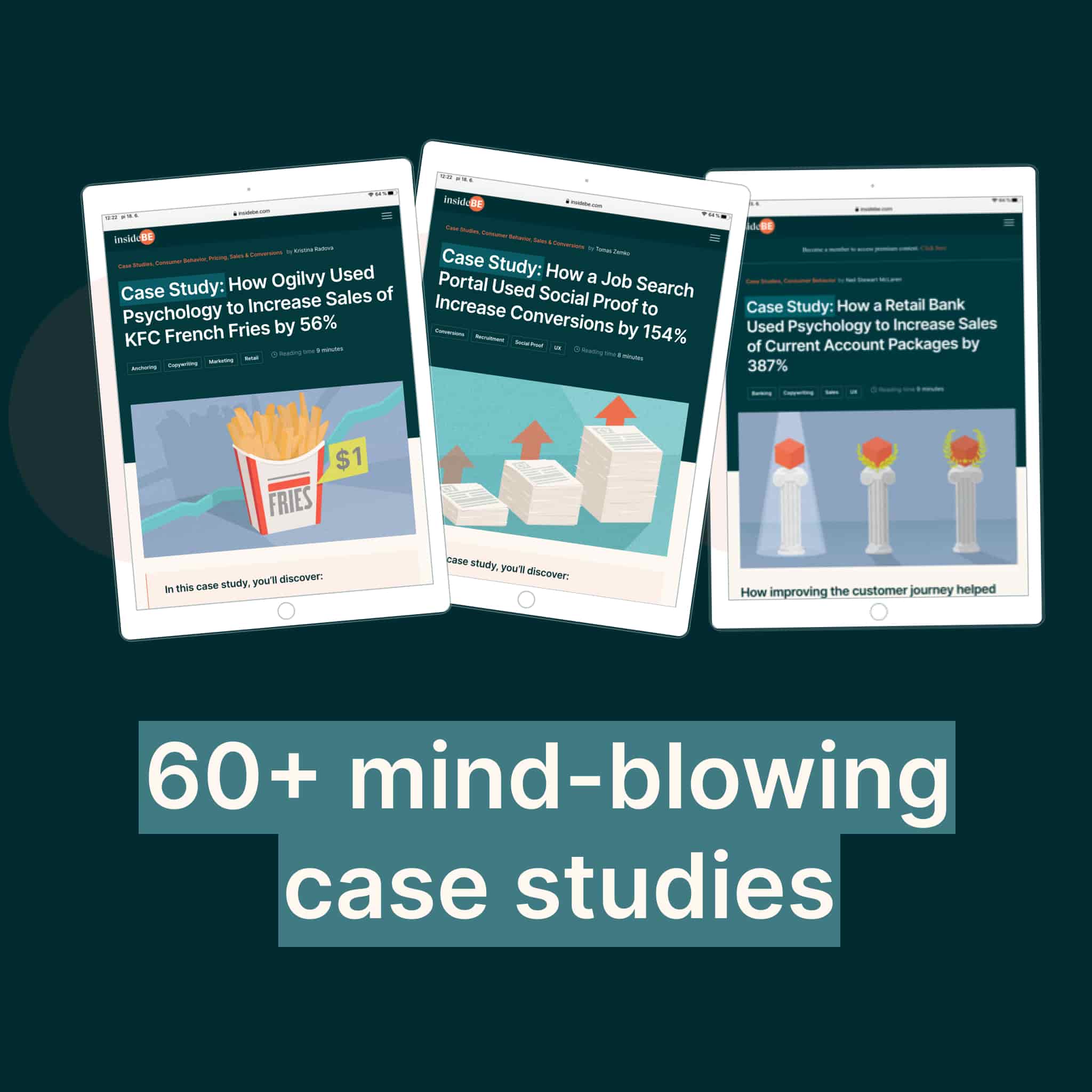
Discover ground-breaking ideas and fascinating solutions.
Do you agree that companies shouldn’t be afraid of making mistakes?
Yes, definitely. Making mistakes is a chance to improve. You need to give people freedom and responsibility, and with that inevitably come mistakes. The bottom line is not to avoid making mistakes altogether, but rather to avoid repeating the same mistakes. But this is easier said than done.
What was the most interesting project you’ve worked on and what was it about?
I would say that I have no favorite one. I like many of our projects, whether they be interesting banking or HR projects. But there’s no particular project that I feel stands out above the rest.
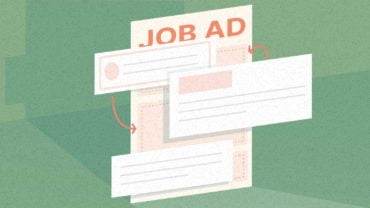
What is the most challenging task you deal with in business?
The most challenging and most important part of my work is finding the right people and making sure that they’re happy at MINDWORX.
Why should I choose MINDWORX if I need help with increasing my sales? Why not go with other marketing consultants instead?
Because what we do is completely different from what marketing agencies do.
Can you elaborate on what you mean by that?
When it comes to purchasing decisions, research shows that 90 to 95 percent of all purchase decisions happen unconsciously. That’s what we tap into. I believe this is the best way to be effective, persuasive, and how to do communication and sales well. You’ve got to understand what really influences your customer´s decisions, and this is what we do. Researchers spent decades finding out what influences our decisions, and I think it’s a sin not to use this knowledge.
We don’t design beautiful solutions, we design solutions that work. The best solutions are often created when you combine expertise in psychology and behavioral economics with creativity. I don’t see ourselves as a competitor to marketing agencies. Instead, I feel that we should work together.
Let’s talk a little bit about the COVID-19 pandemic. It’s been with us for over a year now. What have these new work conditions (primarily working from home and collaborating with your colleagues online) taught you about yourself, your company, and your colleagues?
It was stressful when it all started in the spring of last year. We were faced with a lot of uncertainty. Our clients got scared and began postponing or canceling a lot of our projects. It was a really tough period for us. As for our team, we’ve barely seen each other in person for over a year now, but our relationships have gotten stronger.
I´m really grateful for my colleagues Kristína and Marian who came up with an amazing idea they called “Wellness Fridays.” These are essentially one-hour calls where we don’t talk about work but talk about our well-being instead. These calls allowed us to get to know each other better and understand exactly what everyone has been going through during these difficult times. We made a lot of changes in the way we work and communicate stemming from these calls.
From a team’s perspective, it was probably the best year when it came to improving our relationships. We learned to rely on and trust one another more. We redesigned the way we approach projects and assign tasks, trying to leverage everyone’s strengths and mitigate weaknesses. Eventually, we came out of the crisis much stronger than before. But I will say I’ve lost a lot of hair, literally. (laughs)
“It was stressful when it all started in the spring of last year. We were faced with a lot of uncertainty. Our clients got scared and began postponing or canceling a lot of our projects. It was a really tough period for us.”
What changes that you made during the pandemic will stick with you once the pandemic ends?
We already got used to working from home and I think this will persist. Another thing that I hope will continue is that much of our business will be done through video calls. It saves us so much time and it can be very effective and fast.
And what about the changes in your personal life?
I wasn’t affected much by the lockdowns or self-isolation at home. So, honestly, I don’t think very much has changed in my personal life.
From what you´re telling me, it seems like you find the home office to be quite an effective way to work.
Absolutely, yes. Of course, it’s great to meet colleagues in person, brainstorm ideas, and just hang out. But all in all, I´m fine with working from home.
Tell me about your productivity. What do you do first when you wake up and when are you most productive?
Hmm, let’s see. Well, I exercise for about half an hour after I wake up in the morning. Then I spend about fifteen minutes meditating. Altogether, this routine takes about one full hour. I, honestly, don’t have any specific times when I’m more productive. What I like very much is changing work environments. I spend a lot of time working in coffee shops because the change of scenery helps me think and concentrate better.
“I spend a lot of time working in coffee shops because the change of the environment helps me think and concentrate better.“
The days I love the most have been days when I have beach volleyball training at seven in the morning and then by nine o’clock I’m out on the terrace of a coffee shop eating my breakfast and working. For some reason, I’m able to filter out ambient noise and distractions while still being stimulated by what’s happening around me, and this helps me to be really productive. I’ve come up with so many different ideas while sitting in a coffee shop.
Do you apply behavioral science in your personal life?
Yes, I do. For instance, when I am communicating with people or when I want to adopt a new habit or a routine, it’s always inspired by findings from behavioral economics.
“If you’re doing consultancy work, you can’t rely solely on your academic knowledge. It’s simply not enough because at the end of the day, most businesses won't care if the solutions are 100 percent by the book.”
If you weren’t a behavioral consultant, what would you be doing?
I don´t know. I studied actuarial mathematics and worked as an actuary many years ago, but I’d never want to go down that road again. I hope I’ll never face the dilemma of what I want to be again. (laughs)
What’s your favorite behavioral bias and why?
(Laughs) I like the concept of uncertainty and eliminating it. I think it’s very underestimated and at the same time very powerful.
With all your experience, what skills would you say are needed to be a behavioral consultant? Do you have any recommendations?
I´ll answer as follows: If you´re doing behavioral business consulting, you can’t rely solely on your academic knowledge. It’s simply not enough because at the end of the day most businesses won’t care if the solutions are 100 percent by the book. But what they do care about is whether they yield good results or not. If you’re constantly trying to force academic rigor into everything you do, then it’s just not a very good approach to business. This might score you points in academia — and I am grateful for all the wonderful work that academic researchers are doing — but it won’t take you far in the business world.
If you could meet a young Matej Sucha before he established MINDWORX, what would be your advice to him?
I’d probably tell him this: “Someday you’ll find yourself contemplating whether you should quit your corporate job and establish a consulting firm in behavioral economics, and my advice to you is to just go for it!”
In case you missed it: read the first part here.
